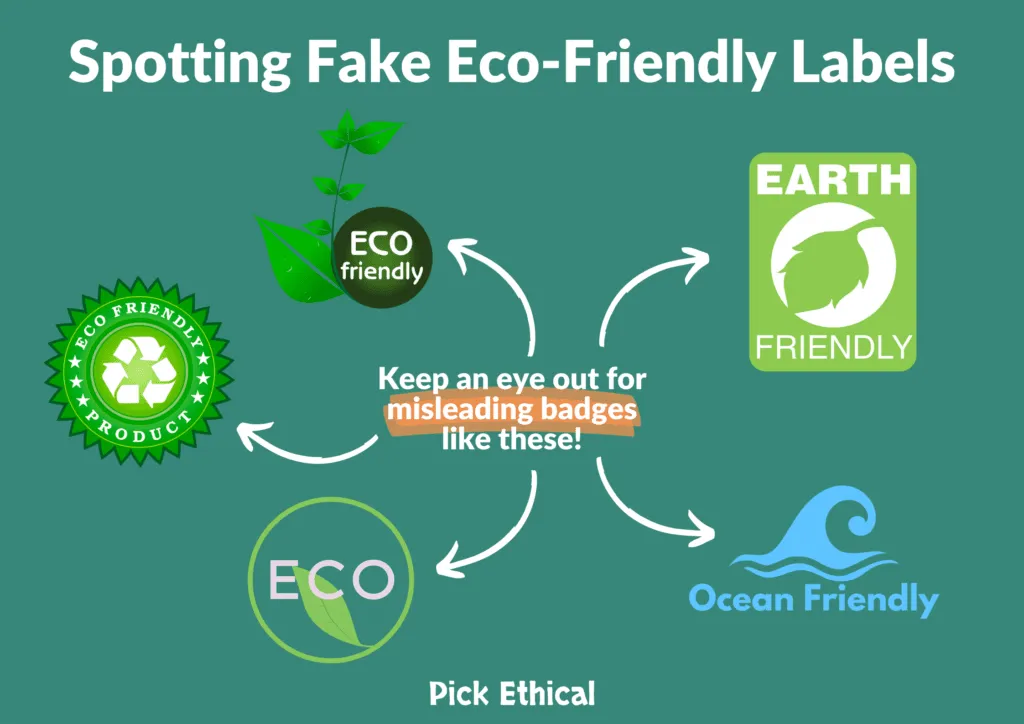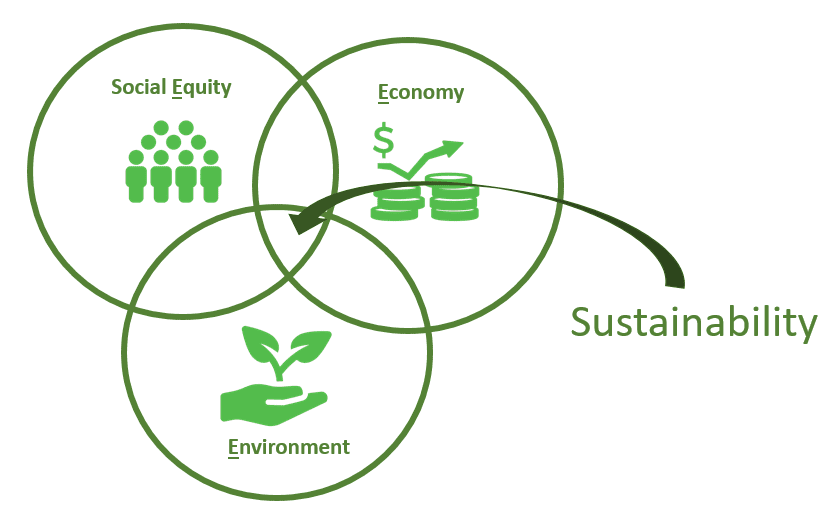In today’s world, where sustainability is increasingly becoming a central issue, consumers are becoming more aware of the environmental impact of their purchasing decisions. From eco-friendly packaging to ethical production practices, individuals want to make responsible choices that help preserve the planet. One of the best ways to ensure that a product is environmentally friendly is by looking for eco-certifications. These labels can help you identify products that meet specific environmental standards and can significantly impact both your personal sustainability efforts and the overall environment.
This post explores the importance of eco-certifications, what you should look for when purchasing products, and how understanding these labels can empower you to make more informed, sustainable choices.
What Are Eco-Certifications?

Eco-certifications are labels or seals given to products, companies, or services that meet specific environmental or sustainability standards. These certifications are typically awarded by third-party organizations that evaluate products based on criteria such as material sourcing, energy use, waste reduction, and labor conditions.
These certifications can cover a wide range of industries, from food and clothing to electronics and cleaning products. The goal is to help consumers identify products that have a lesser environmental impact and are produced in a more sustainable and ethical manner.
Why Are Eco-Certifications Important?
With environmental concerns becoming more prevalent, consumers are increasingly looking for ways to make more sustainable purchasing decisions. Eco-certifications provide clear, trustworthy information about the sustainability of a product. Here’s why they are so important:
- Transparency and Trust
Eco-certifications provide a transparent view into the environmental practices of a company or the sustainability of a product. These certifications are often awarded after rigorous testing, audits, and assessments. When you see a trusted eco-certification label, you can trust that the product has been verified against credible sustainability standards. This can reduce the confusion and doubt surrounding greenwashing, a marketing tactic where companies falsely claim to be environmentally friendly. - Environmental Protection
By choosing products that have eco-certifications, consumers can contribute to the protection of the environment. Many eco-certifications focus on reducing carbon footprints, conserving water, reducing waste, and supporting responsible sourcing of materials. When you purchase these products, you are actively supporting practices that protect natural resources and reduce harmful impacts on the planet. - Supporting Ethical Business Practices
Many eco-certifications also include criteria related to fair labor practices, ensuring that the products are not only environmentally sustainable but also produced under ethical working conditions. This aspect can include fair wages, safe working environments, and the prevention of exploitation in production. - Encouraging Industry Standards
As more consumers demand eco-friendly and ethical products, industries are being pushed to adopt more sustainable practices. By buying certified products, you are encouraging companies to maintain or improve their sustainability efforts. This helps create a ripple effect in industries, fostering a broader movement toward sustainability. - Promoting Health and Wellbeing
Eco-certifications can also benefit consumer health. Products with certain certifications (like organic or chemical-free labels) ensure that they are safer for both the environment and human health. Choosing certified products can help reduce exposure to harmful chemicals and promote overall wellness.
Key Eco-Certifications to Look For
Now that we understand the significance of eco-certifications, let’s dive into some of the most common and trusted certifications you should look for when making a purchase. These certifications are found on a wide range of products, from food and cosmetics to household goods and electronics.
1. Energy Star
One of the most well-known eco-certifications, Energy Star is a certification for energy-efficient appliances and electronics. Products with this label are designed to consume less energy, which reduces their carbon footprint and helps consumers save on energy costs.
What to look for:
- Appliances (fridges, washers, dryers)
- Electronics (computers, monitors, televisions)
- Heating and cooling equipment (air conditioners, water heaters)
Benefits:
- Reduced energy consumption
- Lower utility bills
- Decreased greenhouse gas emissions
2. Fair Trade Certified
Fair Trade certification is given to products that meet rigorous standards for ethical sourcing, fair wages, and safe working conditions. Fair Trade certified products aim to promote economic stability for farmers and workers in developing countries while ensuring that their environmental practices meet specific sustainability criteria.
What to look for:
- Coffee, tea, and chocolate
- Clothing and accessories
- Crafts and home goods
Benefits:
- Ensures fair wages and working conditions
- Promotes sustainable farming practices
- Supports local communities and small-scale producers
3. Forest Stewardship Council (FSC)
The FSC certification is given to products made from wood or paper that comes from responsibly managed forests. These forests must meet strict environmental, social, and economic standards to ensure that they are not contributing to deforestation or environmental degradation.
What to look for:
- Paper products (notebooks, office supplies, books)
- Furniture made from wood
- Building materials (plywood, lumber)
Benefits:
- Promotes responsible forest management
- Protects biodiversity and ecosystems
- Reduces deforestation and habitat destruction
4. USDA Organic
USDA Organic certification is given to products that are grown without the use of synthetic pesticides, fertilizers, or genetically modified organisms (GMOs). The certification covers a wide range of food and agricultural products, ensuring that they are grown using methods that preserve soil health and biodiversity.
What to look for:
- Fresh produce
- Packaged foods
- Dairy and meat products
Benefits:
- Reduces exposure to harmful chemicals
- Promotes soil health and biodiversity
- Supports sustainable farming practices
5. Cradle to Cradle Certified
Cradle to Cradle certification focuses on the circular economy by promoting products that are designed to be reused, recycled, or composted. The certification evaluates products based on five key criteria: material health, material reutilization, renewable energy use, water stewardship, and social fairness.
What to look for:
- Clothing and textiles
- Building materials
- Furniture and home goods
Benefits:
- Promotes the use of safe and non-toxic materials
- Encourages product recyclability and reuse
- Supports renewable energy and water conservation
6. Global Organic Textile Standard (GOTS)
The GOTS certification is awarded to textiles and garments that meet high standards of organic farming and sustainable production. GOTS-certified products must also meet stringent environmental and social criteria throughout the entire production process, from harvesting the raw materials to the final product.
What to look for:
- Organic clothing and textiles
- Bedding and towels
- Baby products
Benefits:
- Ensures organic and sustainable farming practices
- Promotes fair labor conditions
- Limits harmful chemical use in textile production
7. The Rainforest Alliance Certified
Rainforest Alliance certification is given to products that promote the preservation of biodiversity and sustainable livelihoods for farmers and workers. This certification is primarily awarded to products sourced from rainforests, such as coffee, tea, and cocoa.
What to look for:
- Coffee, tea, and cocoa
- Bananas and other tropical fruits
- Wood products
Benefits:
- Supports sustainable agriculture and forestry
- Protects biodiversity and wildlife habitats
- Ensures fair working conditions for farmers
How to Spot Fake or Misleading Eco-Certifications
While many eco-certifications are legitimate and trusted, some companies may try to mislead consumers with vague or false claims of sustainability. To avoid falling for “greenwashing,” here are some tips:
- Check for third-party verification: Reliable certifications are awarded by independent organizations, not by the companies themselves. Always ensure that the certification is backed by a third-party organization that adheres to rigorous standards.
- Look for clear criteria: Genuine eco-certifications will have clear, well-defined standards and criteria that are publicly available. If a certification is vague or lacks transparency, it might not be legitimate.
- Research the organization behind the certification: Investigate the organizations that issue the certifications. Trusted certifying bodies have a reputation for integrity and are often recognized by industry experts and environmental groups.
- Beware of new certifications: New certifications might not have the same level of rigor as established ones. Be cautious with certifications that you’ve never heard of before.

Eco-certifications are an invaluable tool for consumers who want to make more sustainable, ethical, and environmentally conscious purchasing decisions. By understanding and looking for these certifications when you buy products, you can help reduce your environmental footprint, support ethical business practices, and promote the health of our planet.
Remember, every small choice counts. Whether you’re shopping for food, clothing, electronics, or household products, looking for trusted eco-certifications is a simple yet effective way to make a positive impact. By choosing certified products, you are helping build a more sustainable future for everyone.





